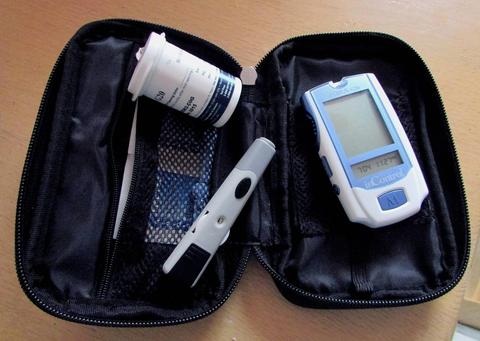4 Unusual But Proven Ways to Improve Blood Sugar
Many of you might know that if your blood sugar isn’t under control, it can create some pretty serious health concerns for you down the road.
So how can you improve blood sugar?
Simply by becoming more sensitive to insulin.
In my opinion, improving blood sugar by becoming more insulin sensitive is one of the best steps you can take towards controlling your health.
Most people have no idea that blood sugar can be improved with these simple steps.
Check them out below.
1 – Take a Warm Bath…With This Healthy Chemical
Want to improve blood sugar? Take a bath in magnesium, one of the healthiest chemicals around.
Believe it or not, a magnesium bath is one of the best things you can do for your health…and for your blood sugar.
There are 2 reasons this is true.
The first is a magnesium bath that induces relaxation. And believe it or not, being relaxed is shown to improve insulin sensitivity and improve blood sugar levels.
Here’s how that works. When you become overstressed and overworked, your body responds by releasing a hormone called cortisol to help manage the stress. Because most Americans are chronically overworked and overstressed most of them have chronically elevated cortisol levels.
The problem here is cortisol is directly tied to blood sugar levels. There’s a physiological response to elevated cortisol – as cortisol goes up so does your blood sugar.
That’s why a warm bath that helps you relax can help bring your blood sugar down.
Next is how magnesium affects your body directly.
Chances are you don’t have enough magnesium in your body. The National Institute for Health estimates that 80% of Americans are magnesium deficient.
Which is a big deal when you consider that magnesium is essential for over 300 bodily processes…many of which are connected to regulating blood sugar. In fact, when you’ve got elevated blood sugar your body actually excretes more magnesium through urination.
Which is why you want to get magnesium into your body to help drive blood sugar levels down.
When you take a magnesium bath not only does the nutrient relax you, it absorbs through your skin and into your body so that you can replace lost magnesium and simultaneously lower blood sugar.
2 – Stop Using Toxic Cleaning Products
Ok, so it’s pretty obvious you don’t want to prepare food with potentially toxic materials…
What you may not know is that chances are you regularly use cleaning products that contain toxins known to disrupt blood sugar.
Toxins found in cleaning products (like your hand soap, your fabric detergent, and even your disinfectant spray) may lead to inflammation…and inflammation has been linked to increases in blood sugar.
Here’s an example of how this works.
You may be familiar with the chemical BPA. It’s a chemical strongly linked to serious health issues and you often see plastic containers that hold food and water now proudly advertise they’re “BPA” Free.
Well, BPA is so harmful that the Journal Of American Medicine noted it’s been found to interfere with hormone function and cause blood sugar to remain elevated for years. In fact, it leads to severe problems like weight gain and can even lead to impaired insulin sensitivity.
Worse yet is how many companies sell cleaning products in the United States with dangerous chemicals like BPA in them.
Last I checked, there are more than 500 toxic chemicals used in cleaning products, many of which are linked to hormone disruption (that could cause high blood sugar) and many of which have health effects which are still unknown.
For this reason, I recommend using cleaning products that are free and clear of toxic chemicals.
I tell my patients that if it has less than 10 ingredients, and most are plant-based, then it’s generally safe for use.
My personal favorites are – anything by Seventh Generation or Puracy; both of which can be found on Amazon.
3 – MAKE SURE to Snack Before Bed
You’ve probably never heard a doctor tell you to snack before bed.
There’s a simple reason for that. Many doctors are trapped in the old way of managing blood sugar.
They want you to stay on medicines, come into the office every few months and see how you’re doing, and do very little to change your diet.
Sure, they might recommend you improve your diet…but how many of them will tell you that you need to eat more fat so your body switches to burning fat for fuel instead of sugar?
1 in 100, probably.
This is why I think it’s important to know that you should snack before you go to sleep.
Of course that doesn’t mean loading up on brownie bites and Haagen Daz.
It’s ideal to choose foods high in fat and protein and low in sugar (while leaving off the cookies and cream), because high fat foods help keep blood sugar stable.
This is less about enjoying your food (although there are plenty of great tasting foods you can snack on before bed) and more about preventing later food binges that cause insulin to spike.
4 – Ditch the screen: Decades ago it would have been unthinkable that you could take a TV into bed with you.
Now it’s pretty much the norm to take our phones and their incredibly bright screens to bed with us… and then hang out in bed with them for half an hour or an hour before we go to sleep.
Well, it turns out screen time before bed is a bad idea. This includes computers, TVs and phones.
The reason they’re so bad for you, and for your blood sugar, is the screens send signals to our brains indicating it’s not yet time to go to bed… even if we’re tired and need to get to sleep fast.
These signals disrupt key hormones that are closely related to the product of insulin. The two main hormones our screens have an effect on are melatonin and cortisol.
The bright screens cause the body to not produce enough melatonin to induce restful sleep. Over time this may lead to increased cortisol levels which has been shown to lead to elevated blood sugar and eventual insulin resistance.
If you ditch the screen about an hour before you go to bed, your body is free to produce the right amount of melatonin you need, which means elevated cortisol and blood sugar levels might not be in your future.

